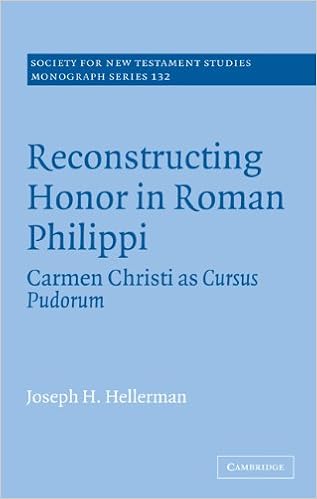When hearing of a good and shrewd steward/servant, on which famous character would a first century listener possibly reflect? It is important to remember when reading the NT that agency is a predominant theme throughout the OT, where examples abound of servants who demonstrated dominance and also possessed the ability to "put all things into subjection," or under their "lord’s feet."
Typology is important for biblical interpretation, but so is context. When reading narratives in the OT, what can be deduced regarding the precedent they set, if any? How did the NT writers weave these well-known narratives and motifs into the telling of what they saw as a greater story with fulfilling characteristics? If one's objective was to communicate that the climax of Israel's history was at hand, and history had led up to the current point, what better way than to highlight the stories that made them who they were?
“The fact that stories are a fundamental characteristic of worldviews can be further illustrated in relation to the Jewish worldview and its various mutations. These can never be reduced to sets of maxims. Even at its most proverbial and epigrammatic, Jewish writing retains the underlying substructure of the Jewish story about the covenant god, the world, and Israel. For most Jews, certainly in the first century, the story-form was the natural and indeed inevitable way in which their worldview would find expression, whether in telling the stories of YHWH’s mighty deeds in the past on behalf of his people, of creating new stories which would function to stir the faithful up in the present to continue in patience and obedience, or in looking forward to the mighty deed that was still to come which would crown all the others and bring Israel true and lasting liberation once and for all.” 1
Rachel was the one whom Jacob loved (Gen 29:18), and it displeased Rachel greatly that she was unable - at first - to give Jacob children. She pleaded with Jacob to which he responded
“can I take the place of God, who has denied you the fruit of the womb?”
One of the next events was Jacob being divinely instructed in a dream to return to his native land. It was the threat of his brother Esau trying to kill him (27:42) that caused him to flee. Is it possible that this situation was no longer a threat? In the same chapter, Rebecca says to Jacob,
“Stay with him (Laban) a while, until your brother's fury subsides.”
This sounds similar to the instructions given to Joseph after having fled from Herod to Egypt, and then instructed to return,
“those who wanted to kill the child are dead” (Matt 2:20).
Not unlike the description of God “remembering” Noah and then acting accordingly by causing his ruach (wind, spirit) to pass over and save the vessel bound travelers, the athropotheism
“God then remembered Rachel”
demonstrates that God was directly intervening to produce results. The result was Rachel conceiving and bearing a son who became a deliver of not only the tribes of Israel, but also the entire land of Egypt, and surrounding nations.
God opening Rachel’s womb was a miraculous event, resulting in a miraculous birth. God can do whatever he desires to suit his own purposes. Whenever attempts are made to box him in, we exclude ourselves from the miraculous.
___________________________
1. N. T. Wright, The New Testament and the People of God: Christian Origins and the Question of God (Fortress Press, 1992), 39.







